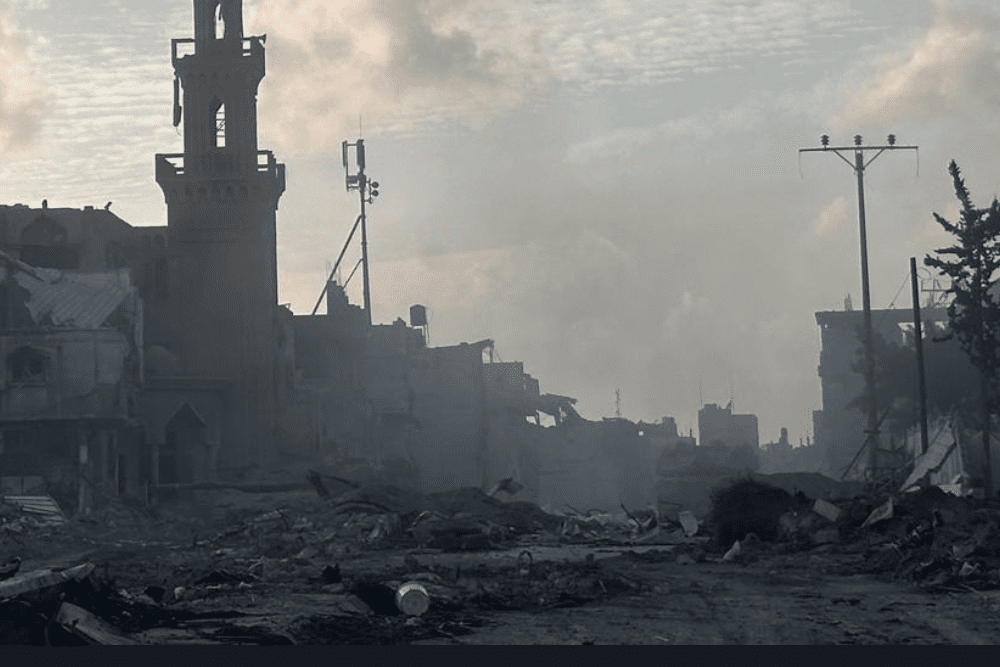Since the brutal 7 October terror attacks by Hamas and other militants on southern Israel and the ensuing military onslaught by Israel on Gaza, more than three quarters of the enclave’s population have been displaced from their homes, many multiple times.
There are widespread shortages of food, water and sanitation, and the health system continues to be systematically degraded, with catastrophic consequences, said the principals of the Inter-Agency Standing Committee (IASC), the coordinating body of global humanitarian organizations.
“Diseases are rampant. Famine is looming. Water is at a trickle. Basic infrastructure has been decimated. Food production has come to a halt. Hospitals have turned into battlefields. One million children face daily traumas,” they noted in a statement on Wednesday.
A ‘death blow’ to aid efforts
The situation is particularly dire in Rafah, at the far south of Gaza.
“Rafah, the latest destination for well over one million displaced, hungry and traumatized people crammed into a small sliver of land, has become another battleground in this brutal conflict,” the IASC heads said.
“Further escalation of violence in this densely populated area would cause mass casualties. It could also deal a death blow to a humanitarian response that is already on its knees,” they warned.
Humanitarians at risk
The IASC principals highlighted the risks aid workers face daily in their efforts to help people in desperate need, adding that they can “only do so much.”
“Humanitarian workers, themselves displaced and facing shelling, death, movement restrictions and a breakdown of civil order, continue efforts to deliver to those in need,” they said.
“But, faced with so many obstacles – including safety and movement restrictions – they can only do so much.”
The essentials
The principals underscored that no amount of humanitarian response will make up for the months of deprivation that families in Gaza have endured.
“This is our effort to salvage the humanitarian operation so that we can provide, at the very least, the bare essentials: medicine, drinking water, food and shelter as temperatures plummet,” they said.
For that, they stressed the need for 10 indispensable elements: an immediate ceasefire; protection of civilians and civilian infrastructure; immediate release of hostages; reliable entry points for aid; security assurances and unimpeded access; a functioning humanitarian notification system; roads cleared of explosive ordnance; and a stable communication network.
In addition, they called for the UN agency assisting Palestine refugees (UNRWA) to receive the resources it needs to provide life-saving assistance as well as a halt to campaigns seeking to discredit the UN and NGOs doing their best to save lives.
“We are calling on Israel to fulfil its legal obligation, under international humanitarian and human rights law, to provide food and medical supplies and facilitate aid operations, and on the world’s leaders to prevent an even worse catastrophe from happening,” the humanitarian leaders concluded.







